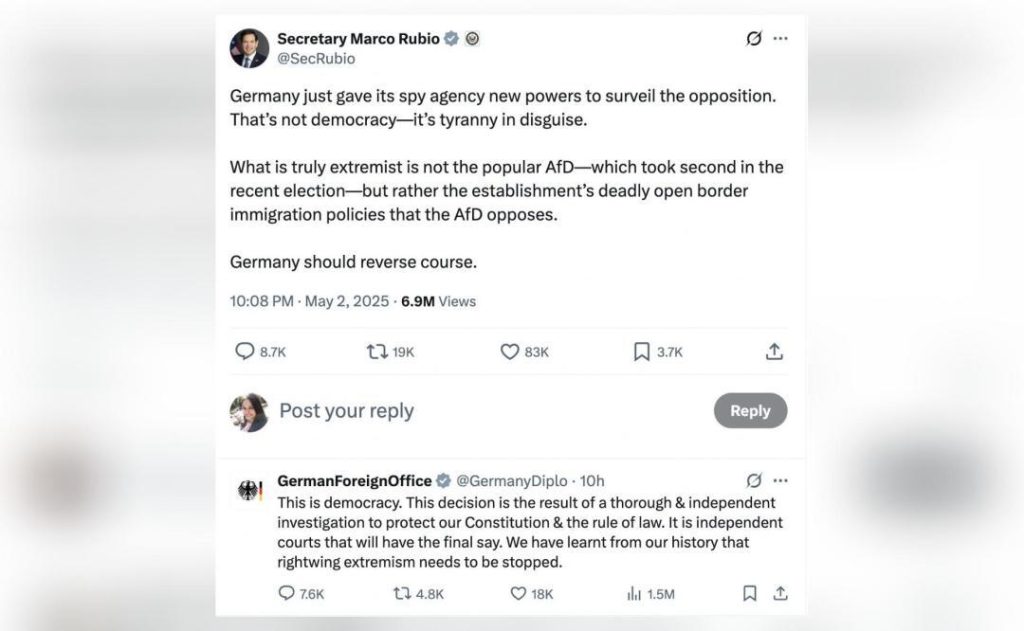
Title: US Secretary of State Marco Rubio and German Government Clash Over AfD Party’s ‘Extremist’ Tag
The recent clash between US Secretary of State Marco Rubio and the German Foreign Ministry has sparked a heated debate over the labeling of the far-right Alternative for Germany (AfD) party as “extremist”. The controversy began when Germany’s spy agency, the Federal Office for the Protection of the Constitution (BfV), designated the AfD as an “extremist” organization, citing its anti-immigrant and anti-Muslim rhetoric.
Rubio, who is known for his strong stance against extremism, recently accused Germany of enabling “tyranny in disguise” by labeling the AfD as extremist. He claimed that the decision was a result of Germany’s “weak” stance on terrorism and its failure to address the growing threat of far-right extremism.
However, the German government responded to Rubio’s remarks by stating that the decision regarding the AfD was the result of a thorough investigation to protect the German Constitution. The government emphasized that the AfD’s ideology and rhetoric posed a threat to German democracy and that the labeling of the party as extremist was necessary to prevent the spread of hate speech and violence.
The controversy has sparked a heated debate over the definition of extremism and the role of governments in addressing the growing threat of far-right extremism. Some have argued that the labeling of the AfD as extremist is a necessary measure to prevent the spread of hate speech and violence, while others have argued that it is a form of political persecution and that the party has a right to express its views.
The AfD party, which was founded in 2013, has gained popularity in recent years by capitalizing on anti-immigrant and anti-Muslim sentiments among German voters. The party’s leaders have been accused of spreading hate speech and promoting violence against minorities, including Jews, Muslims, and migrants.
The controversy has also highlighted the growing divide between the US and Germany over how to address the threat of far-right extremism. While the US has been vocal in its condemnation of far-right extremism, Germany has been criticized for its lack of action in addressing the growing threat.
In recent years, there have been several high-profile attacks in Germany carried out by far-right extremists, including the murder of a pro-migrant politician and the stabbing of a group of people at a synagogue. The attacks have sparked widespread outrage and calls for action to address the growing threat of far-right extremism.
The controversy has also sparked a debate over the role of the media in covering the AfD party. Some have argued that the media has been too lenient in its coverage of the party, allowing it to spread hate speech and promote violence without consequence. Others have argued that the media has been too critical of the party, unfairly targeting it for its views.
In conclusion, the controversy over the AfD party’s “extremist” tag has highlighted the growing divide between the US and Germany over how to address the threat of far-right extremism. While the US has been vocal in its condemnation of far-right extremism, Germany has been criticized for its lack of action in addressing the growing threat. The controversy has also sparked a debate over the definition of extremism and the role of governments in addressing the growing threat of far-right extremism.



